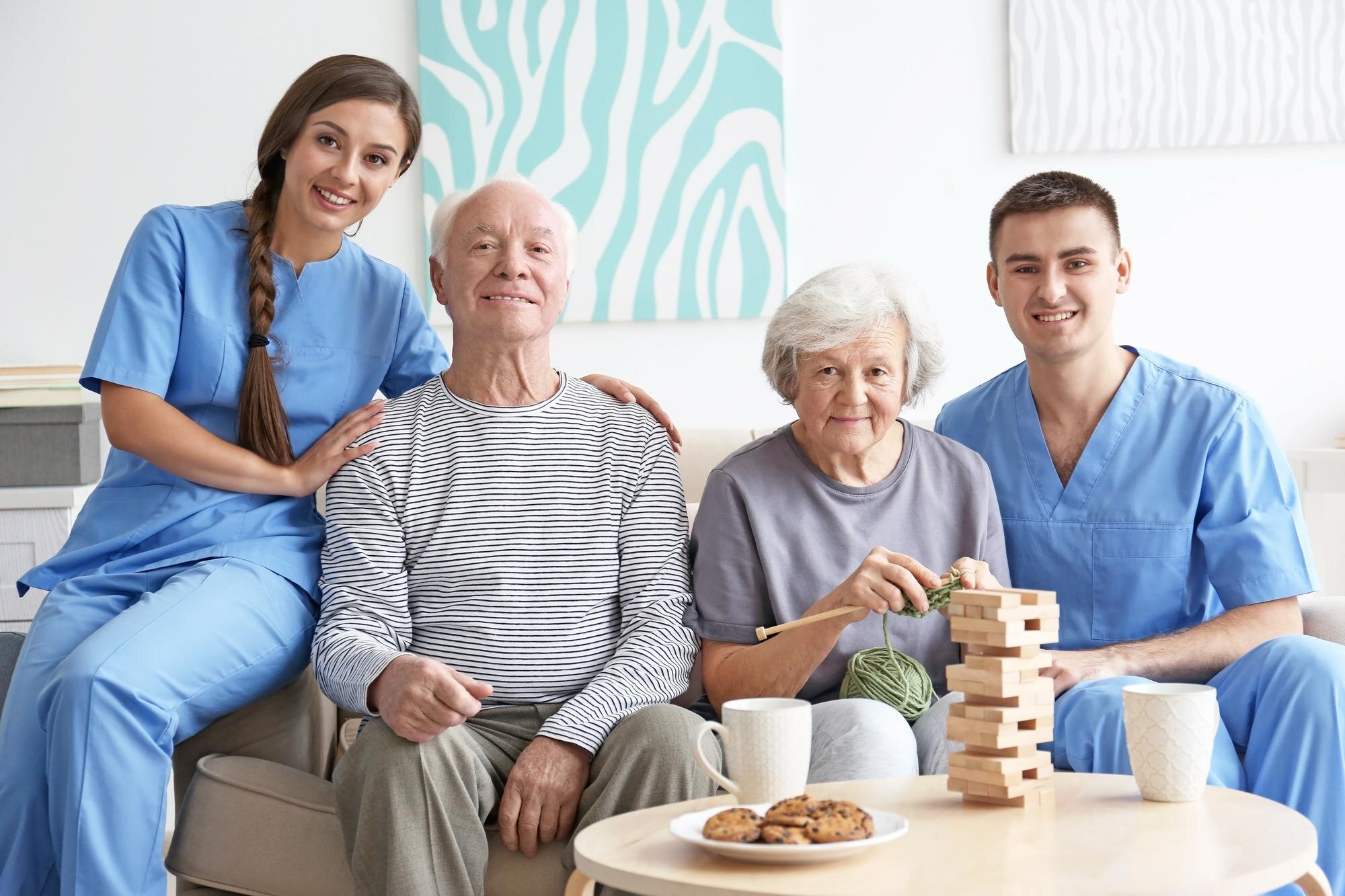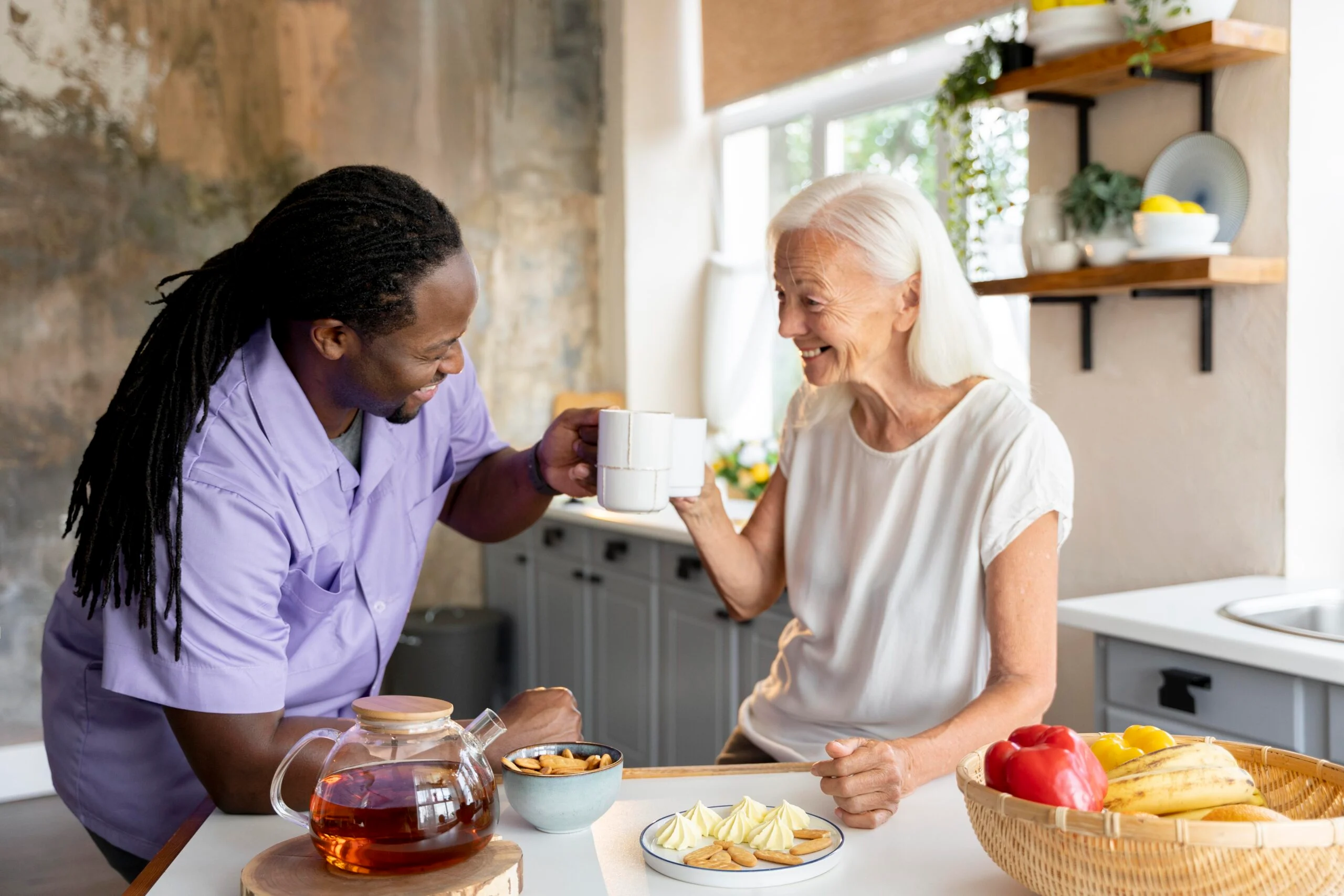With a well-designed personalized elder care plan, families can transform the caregiving journey from crisis management to thoughtful support that honors both independence and safety.
This practical guide offers a streamlined approach to creating an elder care strategy that works for everyone involved.
Why Personalized Elder Care Planning Makes All the Difference
When it comes to elder care, personalization isn’t just a preference, it’s a necessity.
Research shows that 77% of seniors wish to age in their own homes, maintaining familiar routines and surroundings that provide comfort and stability.
A personalized approach to elder care honors these preferences while addressing unique health needs, daily living requirements, and quality of life considerations.
Unlike one-size-fits-all elder care models, tailored plans adapt to individual circumstances, resulting in better health outcomes and higher satisfaction for both seniors and their families.
The National Institute on Aging reports that personalized elder care approaches significantly reduce emergency hospitalizations and slow the progression of many age-related conditions.
Four Key Steps to Create Your Personalized Elder Care Plan
1. Conduct a Thorough Needs Assessment
Begin by honestly evaluating your loved one’s current abilities and challenges in these critical areas:
Health and Medical Needs
- Medication management capabilities
- Chronic condition monitoring requirements
- Mobility limitations and fall risks
- Cognitive health status
- Specialized care needs (such as diabetic monitoring or palliative care for elderly patients)
Daily Living Activities
- Personal hygiene capabilities
- Meal preparation and nutrition
- Home maintenance management
- Transportation requirements (including car assistance for elderly family members)
- Financial management abilities
Social and Emotional Wellbeing
- Current social connections and activities
- Signs of isolation or depression
- Meaningful engagement opportunities
- Cognitive stimulation needs
Try keeping a simple journal for one week, noting patterns, challenges, and strengths. This baseline information becomes invaluable when determining appropriate support levels and monitoring changes over time.
This process helps create a comprehensive list of daily needs for elderly care that serves as the foundation of your elder care plan.
2. Build an Effective Support Network

Sustainable elder care requires thoughtful coordination between multiple supporters. Consider including:
Family Caregivers
- Clearly defined roles based on abilities and availability
- Scheduled rotation to prevent burnout
- A regular communication system for updates
- Decision-making protocols for changing needs
Professional Support
- In-home caregivers for personal care assistance
- Healthcare providers for medical oversight
- Specialized service providers as needed
- Elder care coordinators for complex situations
Community Resources
- Senior centers and adult day programs
- Meal delivery services
- Transportation assistance programs
- Religious community support
- Elder care alliances with combined services
For many families, professional caregivers become the cornerstone of successful home-based elder care plans.
These trained professionals provide consistent support with personal care, medication management, household tasks, and vital companionship, often making the difference between a senior thriving at home versus requiring institutional care.
3. Create a Safe, Supportive Environment
Making strategic home modifications significantly impacts independence and safety. Focus on these high-impact improvements:
Fall Prevention Priorities
- Remove trip hazards like loose rugs and cords
- Install bathroom grab bars and shower seats
- Improve lighting, especially in hallways and staircases
- Create clear pathways throughout the home
Accessibility Enhancements
- Organize frequently used items within easy reach
- Consider first-floor living arrangements
- Adapt kitchen workspaces for seated meal preparation
- Install lever-style door handles and faucets
- Evaluate the need for car transfer aids for elderly family members
Supportive Technology
- Medical alert systems with fall detection
- Medication management systems with reminders
- Motion-activated night lighting
- Smart home features that enhance independence
- Elderly care technology for remote monitoring
The CDC reports that these basic modifications can reduce fall injuries by up to 50%, making this investment in safety one of the most cost-effective aspects of elder care planning.
Many elder care products designed for home safety are available through specialized retailers and can significantly extend a senior’s ability to remain independent.
4. Implement Practical Care Routines
Structure and consistency provide essential security for seniors while ensuring all needs are addressed. A well-designed elder care routine includes:
Daily Framework
- Morning care (hygiene, breakfast, medications)
- Midday activities and nutrition
- Evening routine and security measures
- Overnight monitoring if needed
Weekly Schedule Components
- Medical appointments and therapy sessions
- Shopping and household management
- Social activities and family visits
- Exercise and outdoor time
For those requiring around-the-clock support, options range from family caregiver rotations to professional overnight care for elderly family members.
Understanding how to get 24-hour care for elderly at home helps families make sustainable decisions based on their unique circumstances.
How Professional Caregivers Enhance Your Elder Care Plan
Even with excellent planning and family involvement, professional caregivers often provide invaluable support that strengthens the entire elder care system. Professional caregivers offer:
Consistent, Trained Support
Professional caregivers bring specialized training in personal care techniques, transfer assistance, and safety protocols that protect both the senior and family caregivers from injury.
Objective Assessment
Experienced caregivers often notice subtle changes in condition that might be overlooked by family members who see their loved one daily.
Caregiver Relief
Regular respite care for elderly family members provides essential breaks that prevent burnout and allow family caregivers to maintain their own health and well-being.
Short-term respite care for elderly relatives becomes particularly important during family vacations or when primary caregivers need time for their own medical care.
Companionship Benefits
Beyond physical care, professional caregivers provide meaningful social interaction that reduces isolation and supports cognitive health.
Elderly companion care services often become one of the most valued aspects of professional support.
Building a Partnership with Professional Caregivers

Creating a successful elder care experience involves more than just hiring help, it’s about establishing a meaningful partnership. This will enhance your family’s and loved ones’ quality of life:
The Value of Professional Integration
While family involvement remains central to elder care, professional caregivers bring specialized expertise that complements family efforts:
- Training in safe transfer techniques and personal care.
- Experience recognizing subtle health changes.
- Fresh energy and an objective perspective
- Consistent support that family members may not be able to provide
Many families find that integrating professional caregivers actually strengthens family relationships by reducing stress and allowing family members to focus on meaningful connections rather than exhausting care tasks.
Finding Affordable Elder Care Solutions
Understanding the average cost of home care for elderly family members helps you plan effectively. While professional care represents an investment, many families discover creative approaches to make quality care more accessible:
- Identifying the specific hours when support is most critical.
- Combining professional care with family assistance during evenings or weekends.
- Taking advantage of companion care options for lower-intensity needs.
- Exploring shared care arrangements with trusted neighbors or community members.
By focusing resources on priority needs, many families create affordable elder care plans that maintain quality while respecting budget constraints.
The Importance of Regular Reassessment
Elder care needs rarely remain static. Implementing a system for regular care plan reviews helps families adapt smoothly to changing circumstances:
Monthly Check Ins
Brief assessments focusing on any new challenges or concerns that might indicate changing elder care needs.
Quarterly Reviews
More comprehensive evaluations of how the current elder care plan addresses all aspects of health, safety, and quality of life.
Adjustment Triggers
Certain events should prompt immediate reassessment, including:
- Hospital stays or new diagnoses
- Noticeable changes in cognitive function
- Increased difficulty with previously manageable tasks
- Caregiver stress or burnout signs
This proactive approach helps families identify subtle changes before they develop into crises, maintaining the balance between independence and necessary support.
After hospital care for the elderly often requires temporary adjustments to the care plan, which may become permanent depending on the recovery progress.
Taking the Next Step with Kizuna
At Kizuna, we understand that each family’s elder care journey is unique.
Our professional caregivers become trusted extensions of your family, providing personalized support that evolves alongside changing needs.
Whether you’re seeking daily assistance, overnight care, or respite services, our approach ensures your loved one maintains dignity and independence while giving your family peace of mind.
Our caregivers are carefully selected and trained to provide exceptional support with personal care, medication reminders, light housekeeping, meal preparation, transportation, and meaningful companionship.
This comprehensive approach allows seniors to remain safely in the comfort of their own homes while receiving the exact level of care they need.
Creating a personalized elder care plan represents an investment in both your loved one’s well-being and your family’s peace of mind.
By taking this proactive approach to assessment, planning, and implementation, you’re laying the foundation for sustainable care that honors preferences while addressing practical needs.
For assistance implementing your personalized elder care plan with professional caregiver support, contact Kizuna today.
We’ll help you transform the challenge of elder care into an opportunity to create meaningful, dignified support for your loved one.



